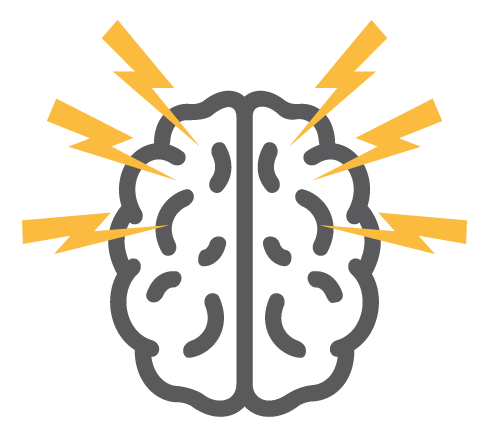Brain Injury Awareness Month
Empowerment & Relief
Everyday 153 people in the United States die from injuries that include TBI (Traumatic Brain Injury). About 1.7 million cases of TBI occur in the U.S. every year and approximately 5.3 million people live with a disability caused by TBI in the U.S. alone. Moreover, TBI is a contributing factor to 30% of all injury-related deaths in the United States.
Raising awareness this month for brain injuries is essential to de-stigmatizing brain injury through outreach within the brain injury community, empowering those who have survived brain injury and their caregivers, and promoting the many types of support that are available to people living with a brain injury.
“Each March is an important opportunity to bring much needed attention to the prevention of traumatic brain injuries and to promote strategies to improve the quality of life for persons living with a brain injury and their families. ”
What is a Brain Injury?
Traumatic brain injury usually results from a violent blow or jolt to the head or body. An object that penetrates brain tissue, such as a bullet or shattered piece of skull, also can cause traumatic brain injury. There are two types to look out for:
Traumatic Brain Injuries could be due to falls, assaults, sport related injuries concussion), abusive head trauma (shaken baby syndrome), gunshot wounds, workplace injuries, child abuse, domestic violence and military actions (blast injuries).
Non-traumatic Brain Injuries could be caused by the following: stroke, infectious disease (meningitis, encephalitis, seizure, electric shock, tumors, toxic exposure, metabolic disorders, neurotoxic poisoning (carbon monoxide, lead exposure), lack of oxygen (hypoxic/anoxic) and drug overdose.
Traumatic Brain Injury Symptoms
Mild traumatic brain injury may affect your brain cells temporarily. More-serious traumatic brain injury can result in bruising, torn tissues, bleeding and other physical damage to the brain. These injuries can result in long-term complications or death.
Physical symptoms
Loss of consciousness for a few seconds to a few minutes
No loss of consciousness, but a state of being dazed, confused or disoriented
Headache
Nausea or vomiting
Fatigue or drowsiness
Problems with speech
Difficulty sleeping
Sleeping more than usual
Dizziness or loss of balance
Sensory symptoms
Sensory problems, such as blurred vision, ringing in the ears, a bad taste in the mouth or changes in the ability to smell
Sensitivity to light or sound
Cognitive or mental symptoms
Memory or concentration problems
Mood changes or mood swings
Feeling depressed or anxious
Taking Action, Next Steps
ALWAYS see a doctor if you or someone you know received a blow to the head or body that concerns you or causes behavioral changes.
ALWAYS seek emergency medical care if there are any signs or symptoms of traumatic brain injury following a recent blow or other traumatic injury to the head. Most injuries require a diagnosis.
WE’RE HERE TO HELP. At Horizon Rehabilitation & Sports Medicine, we offer a variety of specialized physical and occupational therapy services in the Lowcountry where you can get help from our trusted and expert therapists. If you have questions regarding brain injuries, concussions, or establishing a baseline evaluation, we would love the opportunity to help you. Call us at (843) 671-7342
Contact a convenient location near you!
Okatie | Bluffton | Hilton Head









